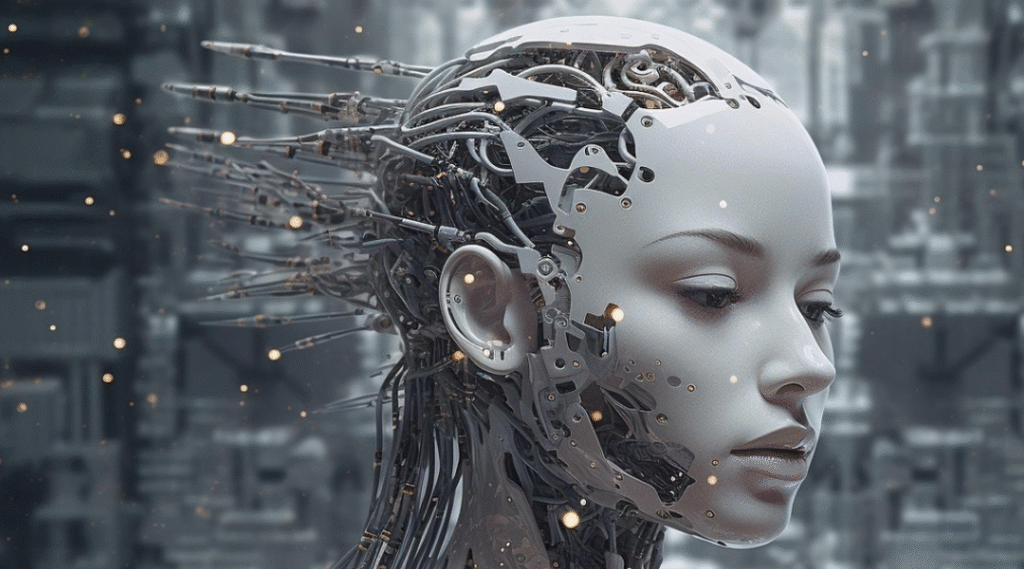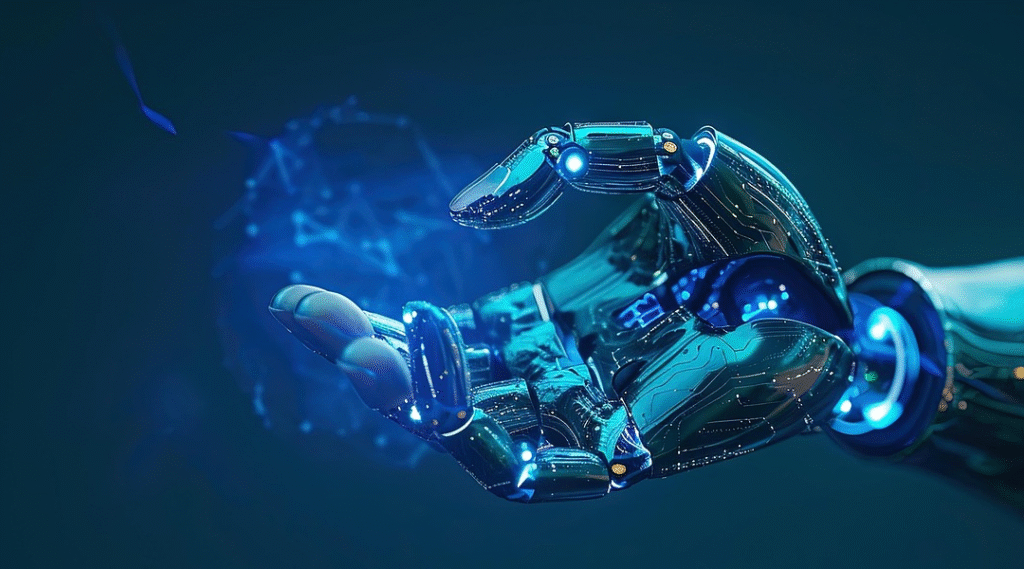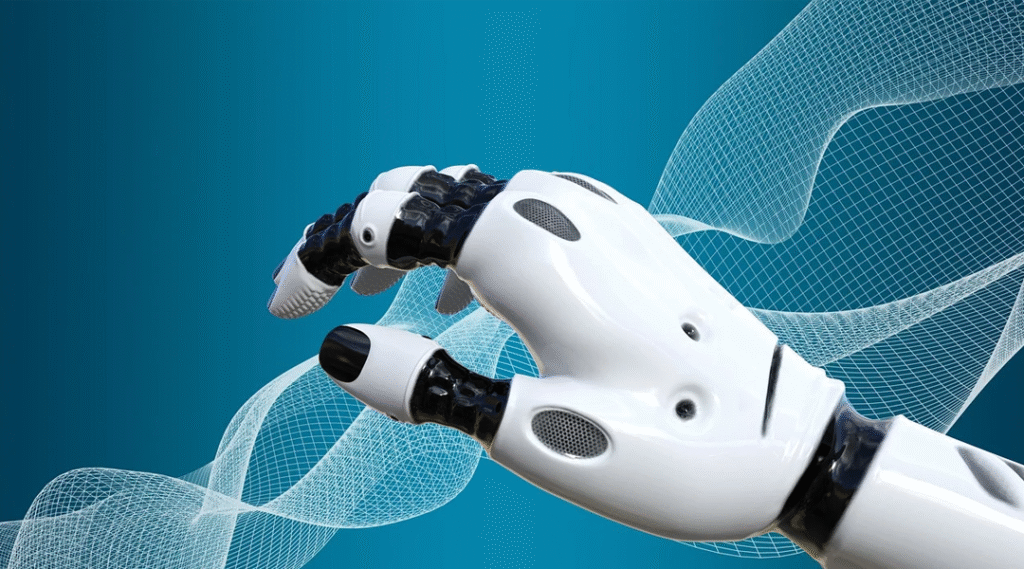Artificial Intelligence (AI) is no longer a concept confined to science fiction or research labs—it is now a transformative force in our everyday lives. From voice assistants and personalized recommendations to self-driving cars and automated manufacturing, AI is deeply embedded in how we live, work, and connect. However, this rapid integration brings a pressing question to the forefront: Is AI helping human beings live better, or is it robbing them of jobs and purpose?
The answer lies not in a simple “yes” or “no” but in the nuanced intersection of innovation, ethics, and adaptation.
The Promise of AI: Enhancing Human Life
AI’s most apparent benefit is its ability to enhance human capabilities and improve quality of life. In healthcare, AI algorithms can detect diseases like cancer at earlier stages, personalize treatment plans, and even assist in surgeries through robotics. This has saved countless lives and improved outcomes for patients worldwide.
In daily living, AI powers smart assistants like Siri, Alexa, and Google Assistant, making tasks like setting reminders, playing music, or managing schedules seamless and efficient. In cities, AI-driven traffic control systems are reducing congestion, and smart energy grids are making power consumption more efficient and sustainable.
Moreover, AI plays a crucial role in accessibility. Tools powered by AI—such as real-time language translation, speech-to-text, and vision assistance—empower people with disabilities to interact more freely with the world. These innovations demonstrate how AI can be a powerful equalizer, not just a productivity tool.
Job Displacement: A Real and Present Concern
Despite its potential to uplift society, AI’s disruptive impact on employment cannot be overlooked. Automated systems are replacing human workers in industries such as manufacturing, customer service, logistics, and even journalism. Routine, repetitive tasks are particularly vulnerable to automation, leading to job losses that disproportionately affect low-income workers.
For example, self-checkout systems in retail stores reduce the need for cashiers. Autonomous vehicles threaten jobs in the transport sector. AI-driven chatbots are replacing human customer service agents. These shifts have sparked fear and resistance, especially in communities where alternative employment opportunities are limited.
The concern is not just about job loss but also about job transformation. As machines take over basic tasks, the demand shifts to higher-order skills such as problem-solving, emotional intelligence, and creativity. Workers who cannot transition into these new roles face an uncertain future.
A Balanced Perspective: Collaboration, Not Competition
Rather than framing AI as an adversary, it’s more constructive to view it as a collaborative partner. In many sectors, AI augments rather than replaces human workers. In journalism, for example, AI can quickly generate data-heavy reports, allowing human reporters to focus on investigative work. In medicine, AI provides diagnostic suggestions, but the final decisions rest with doctors.
The shift also creates new job categories. AI specialists, data scientists, prompt engineers, ethicists, and cybersecurity experts are now in high demand. Educational platforms and institutions are beginning to pivot toward training programs that prepare students and workers for these future-facing roles.
Governments, industries, and educational bodies must cooperate to create reskilling programs, safety nets, and policies that guide AI deployment ethically. AI should not be used as a tool for mere cost-cutting but as a means of enhancing productivity while ensuring social responsibility.
Life Beyond Labor: Reimagining Purpose
One philosophical dimension of AI’s rise is its challenge to our traditional understanding of work and identity. If AI continues to reduce the human burden of labor, what will give our lives purpose? This question invites a broader societal conversation about how we define value and fulfillment.
Some experts envision a future where AI handles the mechanical tasks, freeing humans to pursue more meaningful, creative, and empathetic endeavors. Universal basic income (UBI), reduced workweeks, and lifelong learning could become part of a new social contract that prioritizes well-being over constant labor.
However, realizing this vision requires intentional planning, inclusive dialogue, and cultural shifts that value people not just for their economic productivity but for their humanity.
Conclusion: Steering Toward a Human-Centric AI Future
AI is neither inherently good nor evil—it is a tool, and like any tool, its impact depends on how it is used. It has the potential to dramatically improve our lives, from healthcare and education to sustainability and personal convenience. But it also threatens to disrupt the very fabric of our work-based society.
The challenge is not to stop AI, but to shape it. By fostering collaboration between technology and humanity, investing in education and ethical frameworks, and rethinking what it means to live a good life, we can ensure that AI becomes a force for empowerment rather than erosion.
The question isn’t whether AI will change our lives—it already has. The real question is: Will we adapt wisely enough to ensure it changes us for the better?
You may also like:
Humans and Machines Unite: Embracing Industry 5.0 and Seizing Its Promise
From Fiction to Reality: Could “I, Robot” Unfold in Our AI-Driven Future?
As for in-depth insight articles about AI tech, please visit our AI Tech Category here.
As for in-depth insight articles about Auto Tech, please visit our Auto Tech Category here.
As for in-depth insight articles about Smart IoT, please visit our Smart IoT Category here.
As for in-depth insight articles about Energy, please visit our Energy Category here.
If you want to save time for high-quality reading, please visit our Editors’ Pick here.



